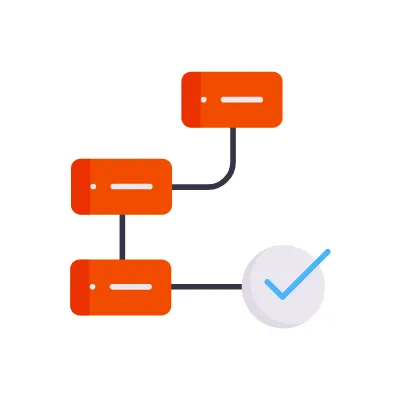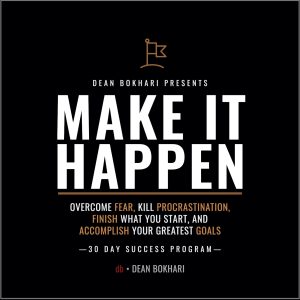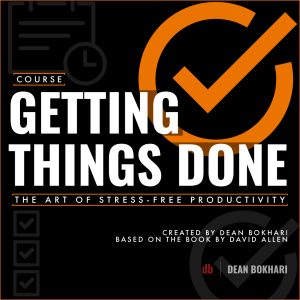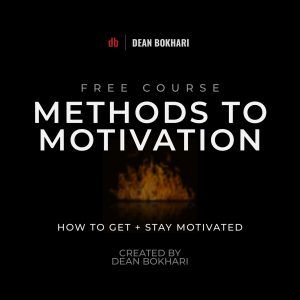Welcome back to Peak Performance Principles, an advanced 7-part productivity series designed to help you operate as the best version of yourself—at work, at home, and everywhere in between. Here’s what we’ve covered so far:
– Principle 1. Find your Peak Performance Period
– Principle 2. Develop the 4 Foundations of Peak Performance
– Principle 3. Connect Roles to Goals + Create a Weekly Plan
– Principle 4. The Action-First Principle
– Principle 5. The Next Action Method
– Principle 6. Maintain a Master List
Here’s what we’ll be looking at today…

Everything has an energy consequence
Every decision we make has an energy consequence. If you approach each new day without having given thought to what you want it to look like ahead of time, then you’ll waste a large portion of your energy thinking about what to do (and what not to do).
Should I hit the gym today, or go tomorrow?
Should I wear this or wear that?
Eat this or eat that?
Reply now or later?
Should I say Yes to lunch with Johnny Tsunami from HR, or should I do a quick lunch on my own so I can get back to the office and finish my work?
We’re asking ourselves questions like this all day long.
Problem is, questions compel us to respond with answers, which compel us to make decisions, which drains us of our self-control and makes us tired. Whether you realize it or not, this leads to poor performance and productivity.
What most people don’t realize is this:
Every time we think about something important or make a decision of some kind, we impose a psychological strain on ourselves.
And get this: Psychological strains (like problem-solving, decision-making, critical thinking, etc) are just as energy-zapping as physical strains (like running, weight-lifting, and other intense physical forms of exertion).
Decision fatigue
Most people know what it feels like to debate with themselves about things.
We re-run the past in our heads, we freak ourselves out by projecting our fears into the future, we think about our decisions over and over…
And we fail to realize that all of these carry consequences—on our energy, on our creativity, on our ability to think strategically.
We tend to think we’re low on energy because we didn’t eat enough or sleep enough. And although those things are also important, there are other reasons for being tired or foggy-minded — and decision fatigue is one of them.
In fact, decision-fatigue is probably the most frequently overlooked cause of low energy, fatigue, overwhelm, and foggy-thinking.
- Decision fatigue (2) occurs when we deplete our daily willpower reserves by putting too much strain on the brain. It turns out that it is possible to get just as tired from thinking too hard as we do from exerting ourselves with physically demanding activities, like exercise.
Actionable insights
Everything has an energy consequence. Even the choices you make. To be more productive and perform at your peak consistently, limit the number of decisions you allow yourself to make during any given day.
Here are some simple ideas to help you make it happen:
1. Make simple decisions in advance.
According to a 2012 article in Vanity Fair, former US President Barack Obama only gave himself two wardrobe choices each day—a blue suit or a gray one:
“You’ll see I wear only gray or blue suits,” [Obama] said. “I’m trying to pare down decisions. I don’t want to make decisions about what I’m eating or wearing. Because I have too many other decisions to make.”
- Think about how you can pare down your own decisions so you can free up the mental bandwidth to crush your most important priorities. One simple way to do that is to pick out your clothes the night before, rather than the morning of.
2. Create habits around key areas of your life to boost your effectiveness.
A habit is an automatic behaviour that you do with little to no conscious thought or effort. You don’t think much about brushing your teeth every morning—you just do it, right? That’s because brushing your teeth is a habit.
In a similar vein, waking up and working out at 5:00 am every morning was tough for me to do consistently at first… But once it became a habit, it became effortless (on most mornings, at least).
- Habits do not drain our energy as much as ad-hoc decisions do, because there’s very little effort involved—you just do it.
3. Make smarter choices.
Do you know where the word decision comes from? It has Latin roots. It comes from the word, dēcīdere, which translates to: CUT OFF. Successful people decide quickly and change their minds slowly. People who experience failure after failure, make decisions slowly, and change their minds quickly.
Stop flip-flopping, hesitating, and endlessly deliberating over your options. Try this instead:
- When you make a decision, stick with it for long enough to get a result. If you make a bad decision, you can learn from it. If you make a good decision, you can benefit from it. But if you spend all your time deciding, you won’t get any results at all.
4. Stop negotiating with yourself.
Let’s say you want to start waking up earlier every morning. You go to bed tonight and promise yourself that you’ll wake up at 6:00 am tomorrow. But when that alarm clock goes off in the morning, you start negotiating with yourself:
“I didn’t get enough sleep last night, I’ll start tomorrow.”
“I’m so comfortable right now, let me sleep a little longer.”
“I won’t have enough energy if I wake up right now. Maybe I should sleep for another hour.”
When you finally do wake up, you won’t feel energized. You’ll feel like you let yourself down. You’ll be starting your day with a broken promise to yourself. And as you know by now, that carries one heck of an energy consequence.
- Negotiating yourself out of a commitment at the last minute has a significant energy consequence.
5. Finish your day before it starts.
Rather than frantically figuring out what you’ll do every morning, a better way to approach your day would be to take a few minutes at the end of each day to quickly map out the following day.
For example, every night, before bed, I write down my plans for the next day, which include:
- My 1 BIG Thing (1BT) that needs to get done that day. This could be a big task, a goal, or a project I need to make progress on.
- My No Matter Whats (NMWs) — these are my non-negotiable daily habits: exercise, my nature walk/daily meditation, reading (30 minutes minimum), mastery-related work, and time spent with the people I love.
- Whatever else needs to be done the following day. This way, my most important goals and projects are given ample time to be crushed—and to not be procrastinated on.
These are just a few simple examples, but it’s usually the simple things that matter most.
What are some ways you can think of to reduce the number of decisions you make in your own life?
Think about it, and eliminate the noisy decisions that fatigue you. It’ll free up the energy you need to stay focused on doing the big + meaningful stuff, rather than procrastinating on it by doing the little + meaningless stuff.
***
Hope you found this valuable,
—Dean.

Triple your performance + productivity
at work, at home, and everywhere in between—with the Peak Performance Training Program.

Need personalized peak performance + productivity guidance?
Apply for private coaching with Dean Bokhari.
Footnotes:


